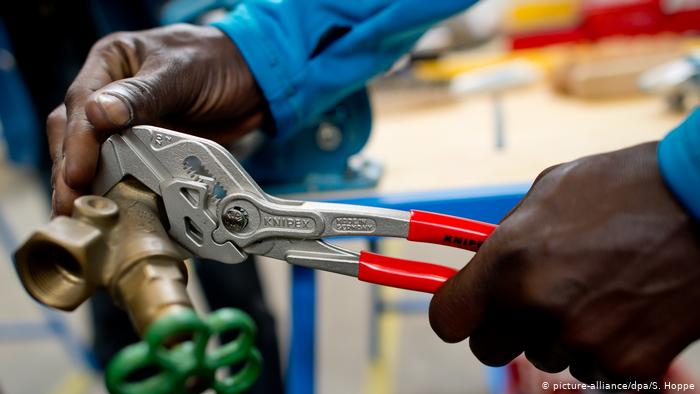Germany on March 1 rolled out new immigration laws that are meant to fix the country’s shortage of skilled workers.
The European nation has now made it easier for foreigners to come to the country for work.
Germany is lacking more than a million skilled laborers to keep its economy going and seems ready to open its doors to foreigners.
The new immigration law will encourage immigration of qualified workers even outside Europe to Germany.
To qualify to work in Germany you don’t have to necessarily have a university or college degree. You can just acquire a vocational training certificate.
But the training program must be at least two years in length, and needs to be recognized as equal or similar to a German degree.
Applicants from outside the European Union are allowed to work in Germany should they have a work contract with a firm based in Germany.
Alternatively if they have relevant professional qualification for a job they applied for, the new law allows for them to travel there.
No restrictions based on country of origin
The new law has taken away a key regulation that requires that people from outside the EU can only take a job if there is no German or EU citizen who is able to do it instead.
How 180 Ghanaians promised ‘decent jobs’ online got enslaved in Niger
The new law does not cover job seekers with qualifications lower than the vocational training level but they can apply for immigration if they have a work contract or a job offer from a German employer.
The employer will only have to train the applicant and make sure he or she acquires a professional-level certificate within two years.
Again the law allows that all those with a work contract or a specific job offer are granted residency status for four years, or the duration of their contract.
The law makes room for these individuals to apply for permanent residence status after four years.
If a foreigner is also looking for a job, you are also allowed entry into Germany on the condition that you can prove you’re able to support yourself and that you speak sufficient German.
Special exemptions
But the law also makes some special exemptions for sectors with there is an acute shortage of skilled professionals.
Medical doctors, IT specialists or registered certified nurses, for example, don’t need to have their qualifications recognized by German authorities as long as they can prove a minimum of five years of on-the-job experience.
Their employers would have to take on financial responsibility for up to one year, including repatriation costs, for an employee whose contract has expired and who refuses to leave Germany voluntarily.
Qualified workers are also allowed to bring their spouses and minor children to Germany.
They only have to prove that they can support their family members financially and provide them with sufficient living space.
These family members would not be able to receive state benefits such as social welfare payments.
An information portal “Make it in Germany” has been set up by the German Labor Ministry to help explain things to people.
Foreigners including Africans wishing to travel to Germany can also find links to other issues related to working in the country.
The government’s aim is to finish the recognition process of an applicant within three months after all the necessary documents have been provided. A work visa will be issued four weeks later.
Additional details from DW.COM
Source: Africafeeds.com



